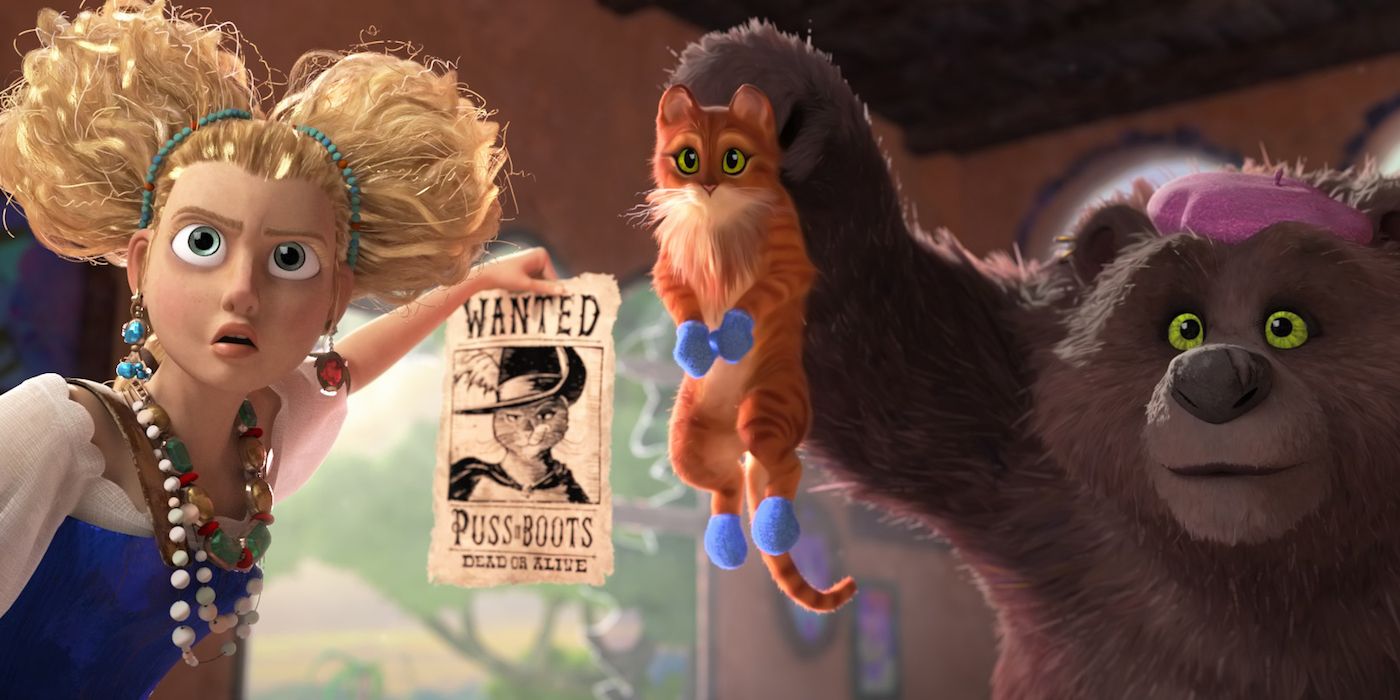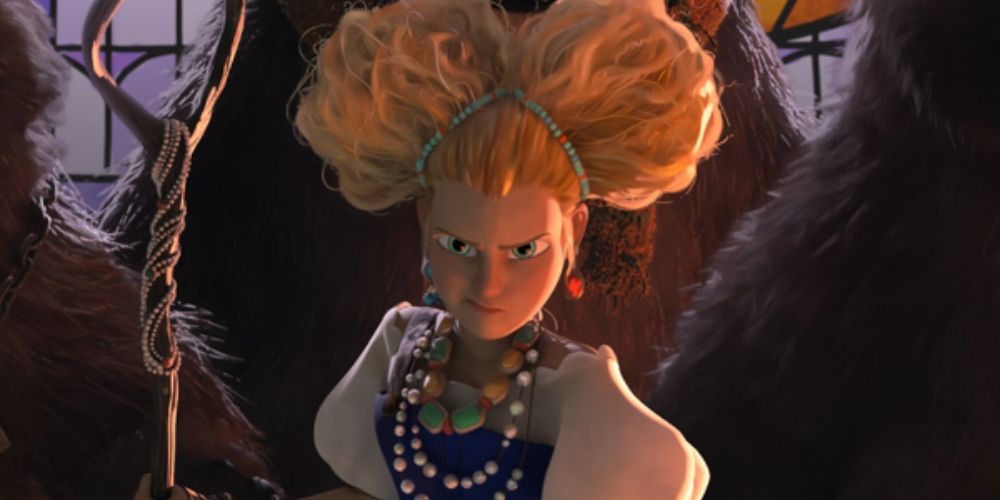The following contains spoilers for Puss in Boots: The Last Wish, now in theaters.
A sequel a decade in the making has hit theaters with amazing character arcs, succinct storytelling and terrifying antagonists, and it's not Avatar: The Way of Water. Puss in Boots: The Last Wish is being praised for delivering a cinematic experience full of heart and well-executed storytelling. At the center of this achievement is the dedication that went into crafting memorable supporting characters such as Death. But while there are many fantastical antagonists that deserve the spotlight in this film, the story of Goldilocks and the Three Bear Crime Family truly stands out.
The journey of Goldilocks, aka Goldie, along with her family of Mama, Papa and Baby, effectively utilizes the trope of "It Was With You All Along." This trope involves a character going on a journey for an object of value, only to realize at the end that they had what they needed the entire time. While this trope can be heavily overused and poorly executed, The Last Wish delivered a tear-jerking and empowering story of adoptive family bonds.
Constant Dissatisfaction Is a Core Attribute of Goldilocks
One of the impressive parts about Puss in Boots 2 is its ability to take the simplistic stories of nursery rhyme characters and expand the core of their stories into fully developed arcs. While actor Antonio Banderas's Zorro-like portrayal of Puss is a key example of this, the antagonists deserve more attention. Goldilocks is a simple children's tale of a girl stumbling upon a cottage and sampling chairs, porridge and bed quality until she finds the one of each that "is just right." At her core, Goldilocks is a character that is frequently unsatisfied with what is presented in front of her. The Last Wish took this trait to frame Goldie as if she is unsatisfied with her adoptive and loving family of bears. She's longed for a human family since she was a kid, and capturing the wishing star is her opportunity to once again tackle her constant state of supposed dissatisfaction by secretly abandoning her bear family for a human one.
Goldie's desire for a new family seems similar to her fairytale version's quirk. However, there is an important distinction. She truly loves her family, and the movie makes that clear, even with their bickering. While the porridge being too cold or hot and the other story verses point to genuine external problems with the items presented to her, Goldie loves Mama, Papa, and Baby but still longs for more. The IWWYAA trope comes into play because Goldie concludes that there is no way to have more of what is already just right. The Last Wish effectively breaks the cycle of dissatisfaction her character is known for in a different fashion than the sample-tasting pattern of her fairytale counterpart.
Puss in Boots 2 Delivered a Refreshing Take on Goldie's Struggle
The Last Wish has a refreshing take due to how it handled the IWWYAA trope with Goldie and her family. Across media, these stories normally involve the character actually getting their wish, only to go down a road of punishment in their new lives to learn the hard way that they always had the thing they wanted. Instead of being walked down this path and given a magic do-over, Goldie threw away her wish and jumped into action to save her true family. If a character is shown that their wish will lead to negative consequences, the impact of their decision to stay is cheapened because it is an easy choice between a good and a revealed bad option. Goldie's choice in the climax of the film stands out because she chose it in the face of an unknowable reality instead of one that revealed a poorer situation.
Within this trope, the character in need of "learning a lesson" is depicted as ungrateful for what they already have and chastised by surrounding characters. One might read Goldie's desire for a human family as being based in selfishness and stupidity. However, the film's flashback sequences reveal that as a recently adopted orphan, she battled identity issues with being different from her family. This struggle is one that many children deal with, and the film took care not to devalue the issue but to shine a validating light on it. Goldie was not met by hostility from her bear family when they discovered her true intentions. While they were sad because they loved her as a family member, their immediate response was to get Goldie her wish. They came to the final showdown ready to fight for their family member's happiness without engaging in the tired lectures attributed to this trope.
Cult Classic Akira Continues Anime's Impact on Hollywood via the Shrek Universe
Dreamworks masterfully took simple stories and tropes to make The Last Wish a surprisingly horrific but entertaining story of finding happiness within others and ourselves. Along with Goldie and her family, the film gave its supporting characters the needed screen time to shape wonderful arcs that flowed naturally into the main story.
To see a tired trope with a new spin, Puss in Boots: The Last Wish is now in theaters.


